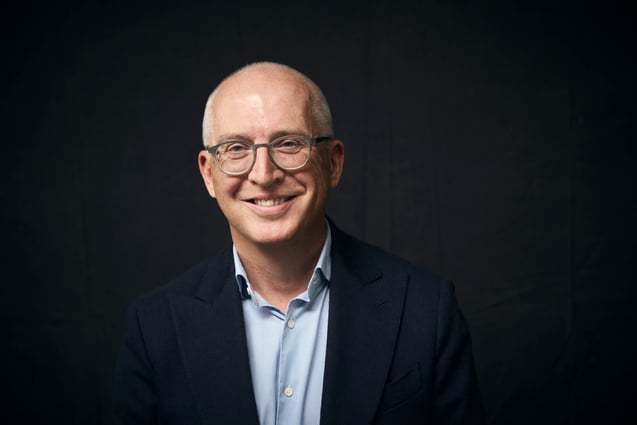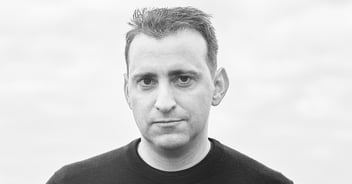
The founding CEO and Partner of Cape Capital on remaining agile, measuring success and the benefits of hiring exceptional outliers.
Doing well and doing good: that’s the defining ethos at Cape Capital. Not only is it key to the company’s unique working culture, built up over the last two decades by Founder & CEO Alex Vukajlovic and Partner Johan Holgersson, it’s also at the heart of their relationship.
"The main cornerstone of our relationship is having shared values and trust," confirms Alex. "Johan knows what I’m capable of and how I think; we don’t feel the need to question each other."
Johan continues; ‘As personalities, we’re quite different – Alex is much more social – but we both come from similar, humble backgrounds. Neither of us were born with a silver spoon: I grew up in the north of Sweden and had no plan to end up co-running this kind of firm in Zurich and I think Alex in Belgrade did not have that ambition either.’ In fact, Alex’s career took him from Serbia to the US, London and Moscow - where he met Johan while working for a Swedish investment bank. Then, at the end of 1999, he swapped Russia for two and a half years at the newly formed PBS bank in Zurich and the idea for Cape Capital was born.
'I had always looked at Switzerland as this place of great private banking, history and tradition, and yet when I arrived, there was a lot of suboptimal advice, lack of transparency and conflicts of interest being given to clients’ recalls Alex. ‘There was a big demand for holistic advice and not enough supply, so you would get practically anybody who could eat with a knife and fork giving people guidance on their fortunes.’ He decided to set up a contemporary wealth management company that would provide transparent, institutional style advice to large private clients, not only avoiding conflicts of interest, but actively aligning investments with their interests – something that many other companies actively avoided. Johan came to visit, to reconnect with Alex, with the plan to stay in Zurich for a year. ‘It’s been a long year,’ he quips.

Although the pair have clearly defined roles – Alex runs the company and focuses on business development, equites and private equity, and taking care of a few clients directly, while Johan concentrates on wealth management clients and their portfolio strategies – both have the same caring approach when it comes to looking after the now 35-strong team. The working culture can be summarised in their hiring attitude and training. As Johan says; ‘it’s not that we’ve deliberately sought out the outliers in this world but if you look at the backgrounds of people we’ve hired, it’s not a homogenous mass of private bankers who have all been to the same school and done the same thing. They come from different countries, they speak different languages and have diverse backgrounds. It has always been about hiring the person and asking ourselves; Can we work with them? What do they represent? Would we like to have dinner with them? Can we learn something from them?'
Alex agrees; ‘Each person is an ambassador for the company, even when they don’t realise it. We look for those who are smart and driven, who go the extra mile. Of course, there are exceptions to the rule but where possible, we try to hire those who are over 50 and under 30. This structure has enabled us to root out office politics as much as we can. We would also never hire a team head from outside the organisation. Instead, we spend time bringing people up to speed and then promoting them based on merit.’
Speaking to them both, what’s clear is that rather than trying to shape all members of the team in the same way, they actively do the opposite: embrace diversity and individuality.

"The last hire is always the benchmark," says Johan. "The next person who comes in should be smarter, brighter, funnier, more creative. I couldn’t get a job here today. The interviewing process is terrifying; I wouldn’t pass."
There is also a real sense of mentorship; a willingness to grant responsibility to others and actively champion them to succeed. ‘We hire someone for a specific role or strategy but at the same time, if they feel they are doing the same thing after three years, and haven’t grown, they’ve failed and we’ve failed them. When they arrive, it’s just the point of departure. Ideally, we want that to morph into an ownership of something much more,’ says Johan. For Alex, as long as someone knows the limits of what they can do, he likes to give them a blank canvas so they can be an entrepreneur. 'Equally, once they come close to those limits, they needn’t feel shy about voicing any issues or saying that they don’t know what to do next.’
'What’s also different here than elsewhere,’ continues Alex, is that we promote accountability and responsibility, and alignment of interests, towards our clients. They need to know who is in charge if there is a mistake or if a situation changes, but also who is responsible for success.’ This means leading by example, as he did himself, after a decade in business, when he informed clients that the company was evolving from its open architecture model to bring everything in-house. ‘We weren’t afraid to tell clients that we were changing the model – and not a single one left us. Nor do we regret it looking back over the performance from the last ten years. Being able to understand when we could be doing things better helps us to navigate the markets.’
As well as nurturing client relationships and fostering a healthy team spirit, the pair also understand the importance of stepping away from the business every now and again. ‘Both of us care as much about our private lives and families, and looking after them, as we do about looking after Cape,’ says Alex. ‘We are both big believers in zooming out to see the forest rather than the trees. We do that in the day to day by not micromanaging and giving people space to run their own thing and also, in the occasional working sabbatical,’ continues Alex who has taken several two-month trips over the years to broaden the company’s networks but also take time away from the office; allowing the teams to make decisions without him.
While the majority of companies benchmark themselves by how many assets they hope to manage in the future (‘I don’t even know how many we’re managing now,’ jokes Alex), how many people they’ll employ or where they’ll be placed in the ranking tables, this duo focuses on remaining agile. ‘The benefit to being smaller is that we can manoeuvre when times are tough for the industry,’ he concludes. ‘We have an established brand and incredible people on our team. We try to remain relevant and low key, to keep our culture going and make clients happy. Only by them being happy are we going to do well.’
Discover more about Cape Capital here.

A pilot project which promises energy independence and carbon neutrality for a small Swiss...

With a brighter future in mind, one of the world’s leading experts in cybersecurity shares his...

Zurich-born artist Nino Miloni reveals the extraordinary depth hidden inside ordinary objects.